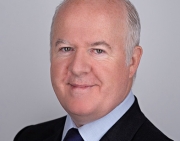

Surprisingly, financial advice comes off even worse than Paraplanning, which I would guess was less well known as a career choice.
According to a new survey by wealth manager St James’s Place and jobs website Indeed, only 9% of people considering switching jobs would look at a career in Paraplanning.
Even worse, only 4% would consider a career in financial advice, a dismal figure. More than twice as many people would choose a new career as an ’employee relations manager’ (HR to you and me) than financial advice.
All of this may be a surprise to many for a number of reasons.
Both the Financial Planning and Paraplanning sectors offer rewarding, well paid, challenging and fulfilling careers, as many planners and paraplanners will attest. Starting salaries for qualified candidates in both are often around the £40,000 to £50,000 mark (the kind of salary level those surveyed suggested they wanted).
With time and experience, earnings of £100,000 or more are possible and with equity stakes and starting your own business, well the sky is the limit.
So what’s holding people back?
{loadposition hidden2}
The answer is lots of things. There is widespread ignorance of what the jobs require or the career paths available. That will change in time. Both Financial Planning and Paraplanning are relatively new professions and more needs to be done to encourage young people to find out about the benefits of joining the profession.
Inertia is also a problem. Too many people are stuck in jobs outside financial advice who would be excellent candidates but they prefer to say put and avoid risk, to their detriment.
Another issue, some might suggest, is the false reputation of the sector as being plagued with crooks and fraudsters. It’s true there have been many high profile cases of financial fraud involving advisers but there seem to be just as many crooked lawyers or accountants. Crime in these ‘sister’ professions has been around a long time and no-one suggests that all lawyers or accountants are crooks. Many depend on them and trust them as valued advisers.
Even so, improving the reputation of the sector will help.
I suspect that while all these factors play a part the real problem is lack of understanding about what a financial adviser or Paraplanner actually does.
I’m often asked by people what my own definition of a Paraplanner is because, as many have said, the job is poorly defined. Equally financial advisers come in all shapes and sizes and some of the titles used are often opaque. What’s the difference for example, between a wealth manager and a Financial Planner? Are they two roles or one blended role? No wonder people outside the sector struggle to understand job definitions.
The professional bodies and the bigger employers do a reasonable job here in encouraging younger people to enter the profession but there is much more they can do.
An annual new campaign to encourage younger (and older people) to consider switching to a career in financial advice or Paraplanning would be no bad thing.
Ultimately, the advice and Paraplanning professions need lots more new blood if the advice gap is ever to be closed and stagnant adviser numbers are to be boosted. Without new blood the professions risk going backwards.
• Our latest issue of Financial Planning Today magazine is available. Here’s link to view the issue: https://bit.ly/2ZdVXWz. You can drop me a line to provide feedback at editor@portfoliopublishing.co.uk.
Kevin O’Donnell is editor of Financial Planning Today and a journalist with 40 years of experience in finance, business and mainstream news. This topical comment on the Financial Planning news appears most weeks, usually on Fridays but occasionally other days. Email: editor@portfoliopublishing.co.uk Follow @FPT_Kevin >Top Tip: Follow Financial Planning Today on Twitter / X @_FPToday for breaking news and key updates
{loadmoduleid 444}
Leave a Reply